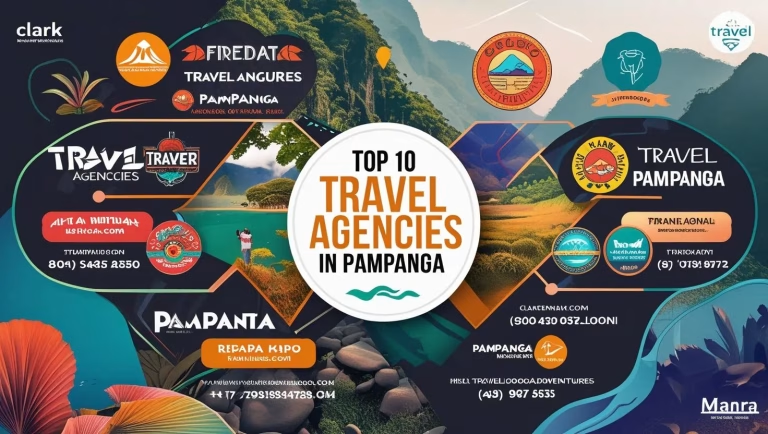Difference Between Tour Operator and Travel Agent: What You Need to Know
Planning Your Trip? Here’s What You Might Not Know
Ever tried planning a big trip and found yourself staring at dozens of options online — packages, agencies, websites, and suddenly, two terms pop up: tour operator and travel agent? They sound kind of similar, right?
I remember when I was organizing my first group trip to Italy. I contacted a travel agency, assuming they handled everything. But later, I realized the actual itinerary, guides, and transport were all arranged by a tour operator behind the scenes! That’s when I really started to understand how the travel industry works — and how these two roles, while connected, are actually quite different.
Let’s break it down so you’re never left guessing again.
What is a Tour Operator?
A tour operator is the mastermind who creates and packages your travel experience. They’re the ones designing the trip from start to finish — think accommodations, transportation, sightseeing, meals, and sometimes even travel insurance.
Here’s a simple way to think of it:
If your trip is a movie, the tour operator is the director.
They negotiate directly with hotels, local guides, transport companies, and excursion providers. Often, they offer ready-made group tours or tailor-made packages.
Examples of what a tour operator does:
- Designs and sells complete travel packages
- Handles logistics like transport, hotels, and tours
- Coordinates with local vendors and tour guides
- Offers group or individual tours (domestic or international)
- Sets prices and sometimes offers deals for early bookings
Some well-known tour operators include G Adventures, Trafalgar, and Intrepid Travel.
What is a Travel Agent?
A travel agent, on the other hand, is more like your personal trip advisor or travel matchmaker. They don’t create tours — instead, they sell and book travel services on behalf of suppliers, including tour operators.
Think of them as the middle person who connects you with the best options, often based on your interests, budget, and schedule.
They can help with:
- Booking flights, hotels, car rentals, and cruises
- Recommending travel packages (from tour operators)
- Assisting with travel insurance and visa information
- Providing one-on-one travel advice
- Handling cancellations, changes, and support
Some travel agents specialize in certain destinations (like Europe or Southeast Asia) or trip types (like luxury, adventure, or honeymoon).
Key Differences Between Tour Operators and Travel Agents
So what’s the real difference between tour operator and travel agent? Here’s a quick comparison table that might help:
| Feature | Tour Operator | Travel Agent |
|---|---|---|
| Role | Creates and organizes travel packages | Sells and books travel services |
| Works with | Hotels, transport companies, guides | Customers and tour operators |
| Services offered | Pre-designed or custom-made tours | Booking flights, hotels, tours, insurance |
| Customer interaction | Sometimes direct, often through agents | Direct contact with customers |
| Example companies | G Adventures, Contiki, TUI | Expedia, local agencies, AAA Travel |
Simply put: Tour operators build the trip. Travel agents help you book it.
Pros and Cons of Using Each
Both tour operators and travel agents have their perks — and a few drawbacks. From my own travels, I’ve worked with both and learned a lot along the way.
✅ Pros of Tour Operators:
- One-stop-shop for your whole trip
- Better prices on group packages
- Organized, scheduled, and reliable
- Good for unfamiliar or faraway destinations
❌ Cons of Tour Operators:
- Less flexibility in itinerary
- Group trips may feel rushed or crowded
- May not cater to niche or personal interests
✅ Pros of Travel Agents:
- Personalized recommendations
- Access to multiple options (flights, hotels, tours)
- Saves time on research and booking
- Help in emergencies or cancellations
❌ Cons of Travel Agents:
- May charge extra fees or commissions
- Dependent on third-party tour providers
- Quality can vary — not all agents are equally experienced
How to Choose the Right One for Your Trip
So, how to choose between a travel agent and tour operator? Here are some tips I use when deciding:
1. Know What Kind of Trip You Want
- All-inclusive or guided tours? → Go with a tour operator
- Customized travel with freedom to explore? → Try a travel agent
2. Consider Your Destination
Some destinations (like safaris or Himalayan treks) are better managed by tour operators who understand the logistics deeply. For more flexible areas like Europe or the US, a travel agent might offer more options.
3. Budget & Convenience
If you want ease and everything handled, operators are your best bet. But if you’re shopping for deals, comparing flights, or juggling hotel choices, an agent can be a lifesaver.
4. Do Your Homework
Look up reviews, check certifications (like IATA or USTOA), and don’t be shy to ask questions like:
- How long have you been in business?
- Do you specialize in this destination?
- What happens if I need to cancel?
5. Ask for a Sample Itinerary
Before booking anything, see what the tour operator or travel agent can offer. A good one will happily share a sample plan — that’s a great way to judge their service.
Final Thoughts: Which One Should You Choose?
There’s no one-size-fits-all answer. The real difference between tour operator and travel agent comes down to who does what behind the scenes of your travel experience.
Tour operators build and manage the tour.
Travel agents help you find and book the best one.
From my own experience, I like using a travel agent when I’m exploring new regions with multiple choices. But for big, bucket-list trips — like my guided tour through the Rockies — a trusted tour operator made all the difference.
Travel Surgical Tech Jobs: How to Start, Where to Go & What to Expect in 2025
Travel agency






One Comment